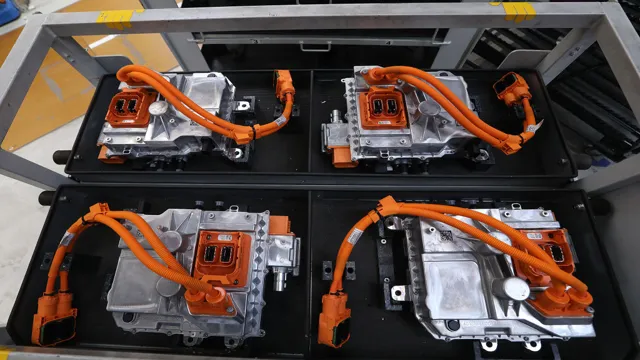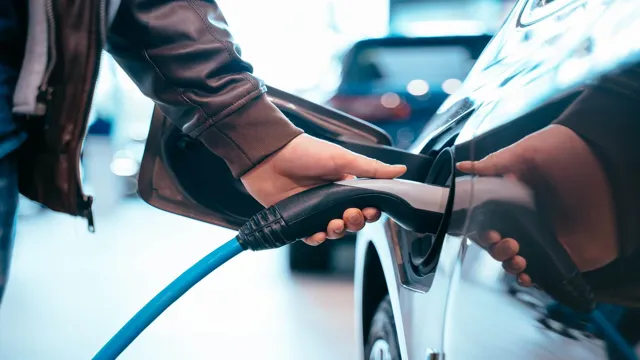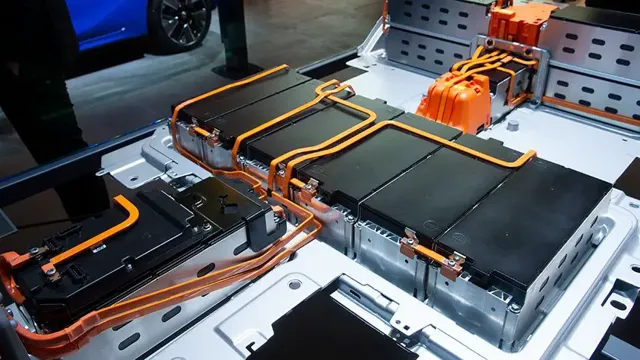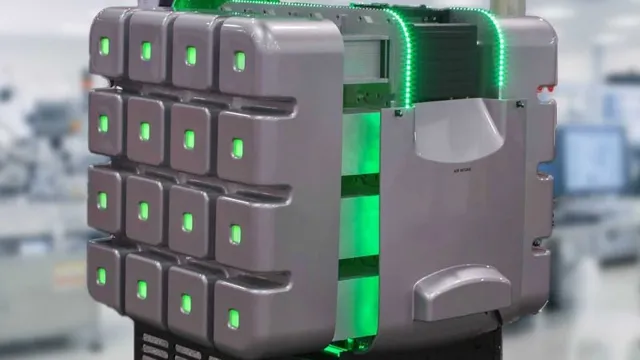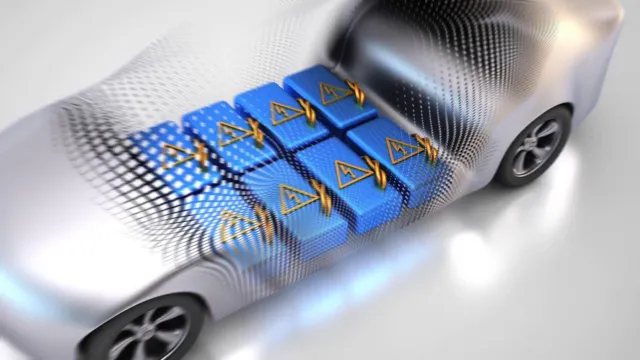The Electric Shocking Truth: Exploring The Cost To Dispose of Electric Car Batteries
Electric cars are becoming more popular by the day, and while they offer numerous benefits such as being eco-friendly and cost-effective, one question that comes to mind is what happens to the battery when it reaches the end of its lifespan. It’s no secret that batteries don’t last forever, and at some point, they will need to be replaced. But what happens to the old batteries once they are no longer of use? This is where the issue of electric car battery disposal cost comes in.
While electric car batteries are usually durable and can last for many years, they will eventually need to be disposed of, and this can be an expensive process. The cost of disposing of an electric car battery varies depending on its size, the materials it is made from, and where you live. In some areas, the cost of battery disposal is relatively affordable, while in other regions, it can be prohibitively expensive, making it difficult for individuals to afford eco-friendly electric vehicles.
This blog post will discuss the various factors that come into play while determining the electric car battery disposal cost and the measures that can be taken to minimize battery disposal costs.
Overview
The cost to dispose of electric car batteries can vary depending on various factors such as the type and size of the battery, disposal regulations in the region, and the recycling process used. Disposing of electric car batteries is a critical task that requires careful attention to ensure that the battery’s hazardous waste does not harm humans, animals, and the environment. The overall cost to dispose of electric car batteries can range anywhere from a few hundred to thousands of dollars, depending on the factors mentioned earlier.
Therefore, it is essential to adhere to proper procedures and regulations when disposing of electric car batteries to minimize the associated costs and negative effects on the environment. Ultimately, the goal is to reduce the impact of unwanted batteries on the planet while ensuring that they are recycled in the most efficient and cost-effective way possible.
Factors affecting disposal cost
Disposing of waste can be costly, especially when dealing with hazardous or special kinds of waste. Several factors affect the cost of disposal, including the type of waste, the location, the quantity, and the method of disposal. For example, hazardous waste disposal is more expensive than regular waste, given the precautions and regulations required.
Moreover, the location affects the cost of transport, with further distances leading to higher disposal costs. Additionally, the quantity of waste generated determines the size of the container necessary, and larger containers incur higher costs. Finally, the method of disposal influences the cost, with landfill disposal being cheaper than incineration.
Thus, when considering waste disposal, it is vital to account for these factors to determine the most cost-effective and environmentally-friendly option.
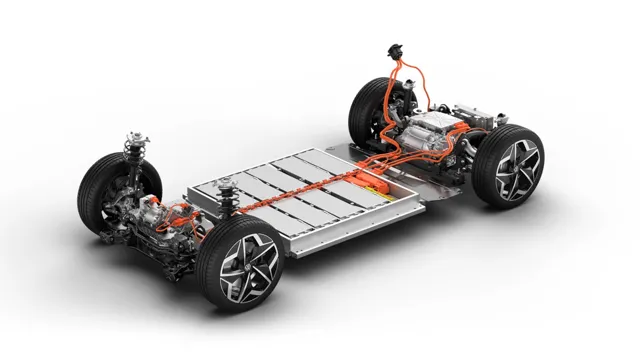
Pricing models
Pricing models are the backbone of any business. Essentially, they determine how much a company is going to charge for its products or services. There are several pricing models that businesses can choose from, depending on their goals and the type of offerings they provide.
The most common pricing models include cost-plus, value-based, and dynamic pricing. Cost-plus pricing involves adding a mark-up to the cost of production, while value-based pricing takes into account the perceived value of a product or service to the consumer. Dynamic pricing, on the other hand, adjusts prices based on market demand and other external factors.
Understanding these different pricing models is crucial for any business to effectively price its offerings, manage inventory, and maximize profits. By choosing the right pricing model, businesses can not only stay competitive but also generate greater revenue and profits.
Cost breakdown
When it comes to the disposal of electric car batteries, there are various factors that contribute to the overall cost. The primary expense comes from the recycling process, which involves breaking down the lithium-ion battery cells and extracting valuable metals such as cobalt and nickel. This process can be quite expensive due to the need for specialized equipment and trained personnel.
Additionally, transportation costs can also be a significant factor, as electric car batteries need to be shipped to a recycling center or disposal site. Finally, there are also regulatory and compliance costs associated with the safe and environmentally responsible disposal of electric car batteries. All of these factors combined can add up to a significant cost, making it essential for manufacturers and consumers to carefully consider the long-term implications of electric car batteries and their disposal.
Recycling cost
Recycling cost can be broken down into various components, such as collection, transportation, sorting, cleaning, and processing. Collection refers to the cost of collecting recyclable waste from households, businesses, and public places, which can vary depending on the size and type of bins used and the frequency of pickups. Transportation involves hauling the collected waste to sorting and processing facilities, which can be expensive due to the fuel and labor costs involved.
Sorting and cleaning refer to the cost of separating different types of recyclables, removing contaminants and impurities, and preparing the material for processing. Processing involves turning the sorted and cleaned materials into raw materials that can be used in the manufacture of new products, which requires specialized equipment and expertise. Overall, the cost of recycling can vary widely depending on these factors, as well as local regulations, market conditions, and public awareness and participation.
Despite the challenges and costs involved, recycling remains an important and necessary practice for reducing waste, conserving resources, and mitigating climate change.
Transportation cost
When it comes to transportation costs, it’s important to understand the breakdown of expenses. Transportation costs can include fuel, maintenance, insurance, and any other expenses associated with getting from point A to point B. The amount of money spent on each of these categories can vary widely depending on the type of transportation and the distance traveled.
For example, owning and operating a car can be quite expensive, with the cost of fuel and maintenance adding up over time. However, public transportation may be a more cost-effective option for those looking to save money. Additionally, the cost of transportation can be influenced by other factors such as the route taken or the time of day.
It’s important to consider all of these factors when determining transportation costs, and to find the most affordable option that meets your needs. By prioritizing cost-efficient transportation, you can save a significant amount of money over time while still getting where you need to go.
Disposal cost
When it comes to waste management, one of the primary concerns for households and businesses is the cost of disposing of waste properly. The cost breakdown for disposal can vary depending on the location, type of waste, and disposal method. Typically, the costs can consist of transportation, processing, and disposal.
Transportation costs include the fees for hauling and transporting the waste to the right facility. The processing cost involves sorting, recycling, or separating hazardous waste from non-hazardous waste. Finally, the disposal cost includes the fee for dumping the waste in an approved landfill or incinerator.
While the exact costs can differ, understanding the general breakdown will help households and businesses budget accordingly. Knowing the cost breakdown can also encourage people to recycle more, reduce waste production, and opt for eco-friendly disposal methods, ultimately minimizing the expenses they might otherwise incur. By being mindful about waste management, we can all contribute to a greener and healthier environment while also saving ourselves from unnecessary expenses!
How to save money on disposal
When it comes to disposing of electric car batteries, the cost can be quite high. However, there are some ways to save money on this process. One way is to look for recycling programs that offer incentives or discounts for bringing in old batteries.
Also, consider selling the battery to an auto parts store or a scrap yard. Many of these places will pay you for the battery, which can offset the cost of disposal. Another option is to reach out to the manufacturer of your electric car.
Some manufacturers have take-back programs where they will dispose of the battery for you. Finally, consider finding a local municipality or government program that offers free or low-cost battery disposal services. Taking advantage of these cost-saving options can help you responsibly dispose of your electric car battery without breaking the bank.
DIY options
If you’re trying to save money on disposal, there are several DIY options you can consider. One way is to compost your food waste. This not only reduces the amount of waste you send to the landfill, but it also creates nutrient-rich soil for your garden.
Another DIY solution is to recycle items that your local recycling center will accept. This can include paper, plastic, glass, and metal. You can also repurpose items that you would normally throw away, such as using coffee grounds as a natural fertilizer or turning old t-shirts into cleaning rags.
By finding creative ways to dispose of your waste, you can save money and reduce your impact on the environment.
Donation and trade-in programs
Donation and trade-in programs can help you save money on disposal, while also doing good for the environment and the community. Many retailers and manufacturers offer these programs, usually with the aim of encouraging consumers to upgrade to newer models of electronics or appliances. By trading in your old device, you can receive a discount on the purchase of a new one.
Alternatively, you can donate your used items to charity or nonprofit organizations that accept electronics donations. This can be a great way to dispose of items that are still in good working condition but are no longer needed. By donating them instead of throwing them away, you help reduce waste and extend the lifespan of the products.
Plus, many charities will provide a tax deduction for your donation, which can also help you save money. So, before you toss your old electronics or appliances in the trash, consider whether a donation or trade-in program could be a better option for you. Not only will you be doing your part to help the planet, but you may also be able to save some money in the process.
Conclusion
While it may seem costly to dispose of electric car batteries, the environmental benefits and long-term savings outweigh the initial cost. Plus, with advancements in technology, we may soon see even more efficient and eco-friendly options for disposing of these batteries. So let’s continue to embrace the electric car revolution and work towards a more sustainable future!”
FAQs
What is the cost to dispose of electric car batteries?
The cost to dispose of electric car batteries varies depending on the location and the type of battery. Generally, it can range from $10 to $50 per battery.
Can electric car batteries be recycled?
Yes, electric car batteries can be recycled. The materials in the batteries, such as lithium and cobalt, can be repurposed to create new batteries or other products.
Are there any environmentally-friendly ways to dispose of electric car batteries?
Yes, there are environmentally-friendly ways to dispose of electric car batteries, such as repurposing them for energy storage in homes or using them to power renewable energy systems.
How long do electric car batteries last and when do they need to be disposed of?
The lifespan of electric car batteries can vary, but they typically last between 8 and 10 years. When the battery is no longer useful for the car, it should be disposed of properly to prevent environmental harm.
